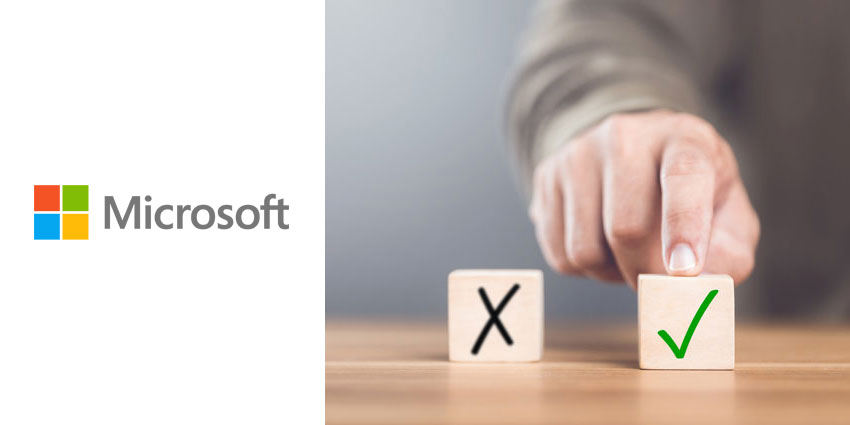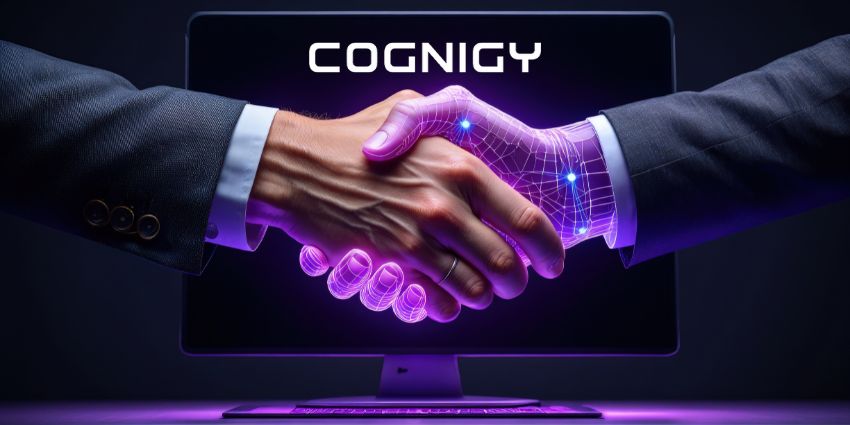Traditional diallers feed from a preset list of customers, auto-dialed and matched with available contact center agents.
Such an approach has several disadvantages, including phoning a customer before an agent is free or leaving them idle for too long before dialing the following number on the list.
That’s where predictive diallers come in.
Predictive diallers use sophisticated algorithms for advanced outbound functionalities, enabling several benefits.
What is a Predictive Dialler? A Definition
A predictive dialler is an outbound calling technology that auto-dials customers from a list of telephone numbers, trying to reach various numbers until it detects a connection. Once connected, the call immediately transfers to a live agent.
Predictive diallers assess agent performance KPIs to anticipate how long their ongoing call is likely to continue and time the next dial accordingly.
Using a predictive dialler, there is little chance that a customer will pick up the phone and not find a live agent on the other side.
How Do Predictive Diallers Work?
Predictive diallers are a longstanding customer experience technology conceptualized in the late 1980s for banks conducting telemarketing campaigns.
Of course, at the time, the technology remained largely primitive, and the real revolution in predictive dialing systems arrived with the advent of sophisticated algorithms.
Today, a predictive dialler can analyze agent performance data and estimate when they will become free to take a call.
Indeed, its built-in algorithms study various facets of agent behavior to make this prediction with surprising accuracy so that the dialler initiates a call only when the agent is about to become free.
As a result, contact center agents have a steady stream of calls, ensuring minimal idle time.
Also, predictive diallers can initiate multiple calls simultaneously in case the customer does not pick up and the call goes to voicemail.
Nowadays, many CCaaS vendors leverage AI to predict customer-agent matches more accurately.
6 Benefits of Predictive Diallers
Predictive outbound diallers ensure employees in a contact center make the most of their available time. They reduce the number of minutes users spend typing in numbers and listening to dial tones so that each employee can engage in as many calls as possible.
Used correctly, predictive diallers can:
1. Improve Productivity
Predictive diallers use algorithms to determine the duration of a call and assign each call automatically to the right agent.
In doing so, they lock in more sales and opportunities, reducing the amount of time agents spend finding numbers, contacting leads, and listening to busy signals or voicemail messages.
Essentially, predictive diallers reduce the amount of repetitive work on a contact center agent’s to-do list and allow companies to make multiple calls simultaneously.
As a result, idle time decreases, agent talk time rises, and the overall levels of productivity and efficiency in the contact center surge.
2. Increase Sales and Opportunities
Predictive diallers allow companies to increase the number of calls team members can make on any given day.
The more successful connections an agent can access to specific leads and prospects, the more likely they are to generate a higher number of sales.
Some predictive dialler solutions even integrate with other tools to improve business results.
For instance, a predictive dialler system connected with a CCaaS environment and CRM technology can provide each agent with information about the customer as soon as they answer the call.
As such, agents may personalize their sales pitch to the individual client’s needs.
The same diallers can also upload new information about agents to sales tools so that other employees can follow up with warm leads as quickly as possible.
3. Minimize Human Error
In a contact center, two agents sometimes call the same client simultaneously or fail to follow up on a missed call.
With a predictive outbound dialler, companies can ensure each employee focuses on a different lead, at the best possible time.
Contact centers may also tweak the system to call numbers relevant to the agent’s skills.
In addition, because predictive diallers record information from a conversation automatically and update data in real-time, there is less of a risk that companies will miss out on crucial customer insights.
After all, in a busy contact center, it’s easy for an agent to forget about updating a CRM after they’ve successfully connected with a potential prospect.
4. Reduce Operational Costs
The longer it takes to reach out to prospects, the more employees a company needs to onboard to manage the growing workflow.
In an outbound environment, professionals initiate conversations with new leads and follow up with calls at the right moment, generating sales and opportunities.
Predictive diallers also help reduce operational expenses by ensuring team members complete more work in less time.
Moreover, many solutions are accessible in cloud environments, with minimal initial overheads.
5. Improve Customer Service
Contact centers can configure predictive diallers with specific workflows, ensuring multiple agents don’t contact the same prospect in a short time, causing client frustration.
The same tools also consider various other factors, such as when contacts are likely to be available.
Moreover, some solutions come with algorithms for detecting time zones, so companies are less likely to make calls to prospects at inappropriate times.
6. Enhance Insights
Many vendors now embed analytical and tracking tools into their predictive diallers, which help companies to generate valuable reports and insights.
As such, they track information about which customers are likely to answer calls at what times.
Solutions may also connect to real-time dashboards, providing supervisors, agents, and business leaders with insights into employee productivity and performance.
Such information can help businesses make better decisions about how to schedule teams and calls.
Plus, these solutions can provide insights that improve a company’s chances of successfully converting prospects into leads.
Are Predictive Diallers Legal?
Some argue that predictive diallers can intrude upon a customer’s privacy and personal space by auto-dialing multiple times.
However, predictive diallers are legal if businesses use them for legitimate purposes.
If a contact center obtains prospect information and consent through lawful means, it can freely use predictive dialing to streamline outbound interactions and save its agents hours of effort.
Therefore, the customer list, not the dialing system, is critical to wade through for compliance before kickstarting an outbound campaign.
Find out how a predictive dialler differs from a progressive dialler in our article: Predictive vs. Progressive Diallers: Which One Should You Choose?







